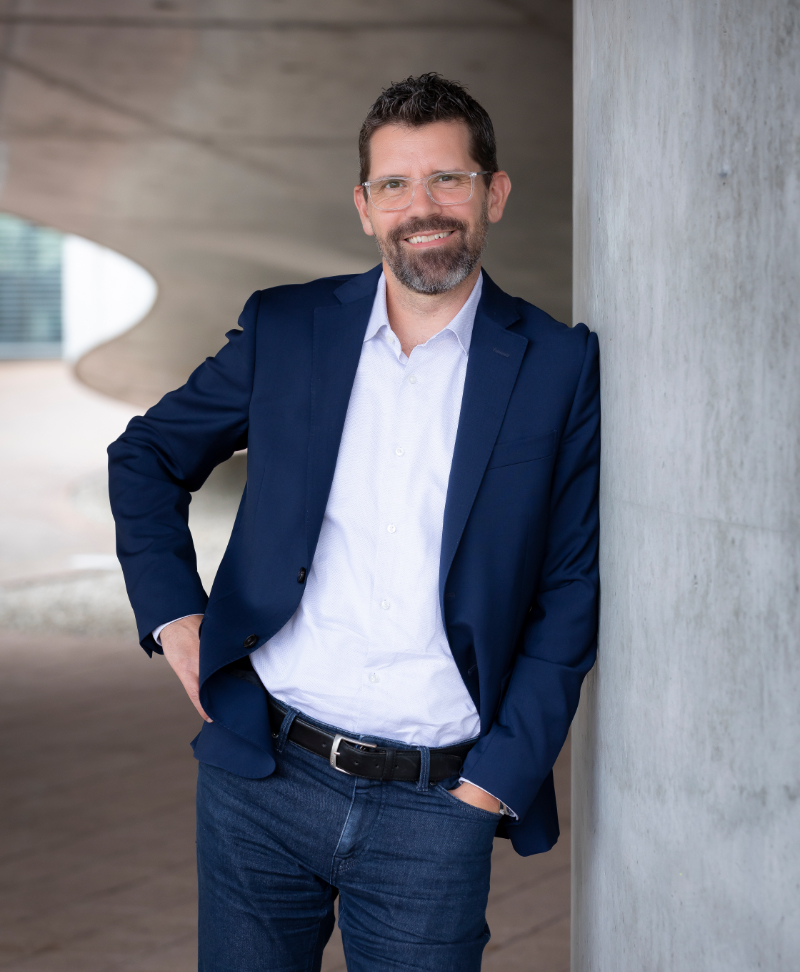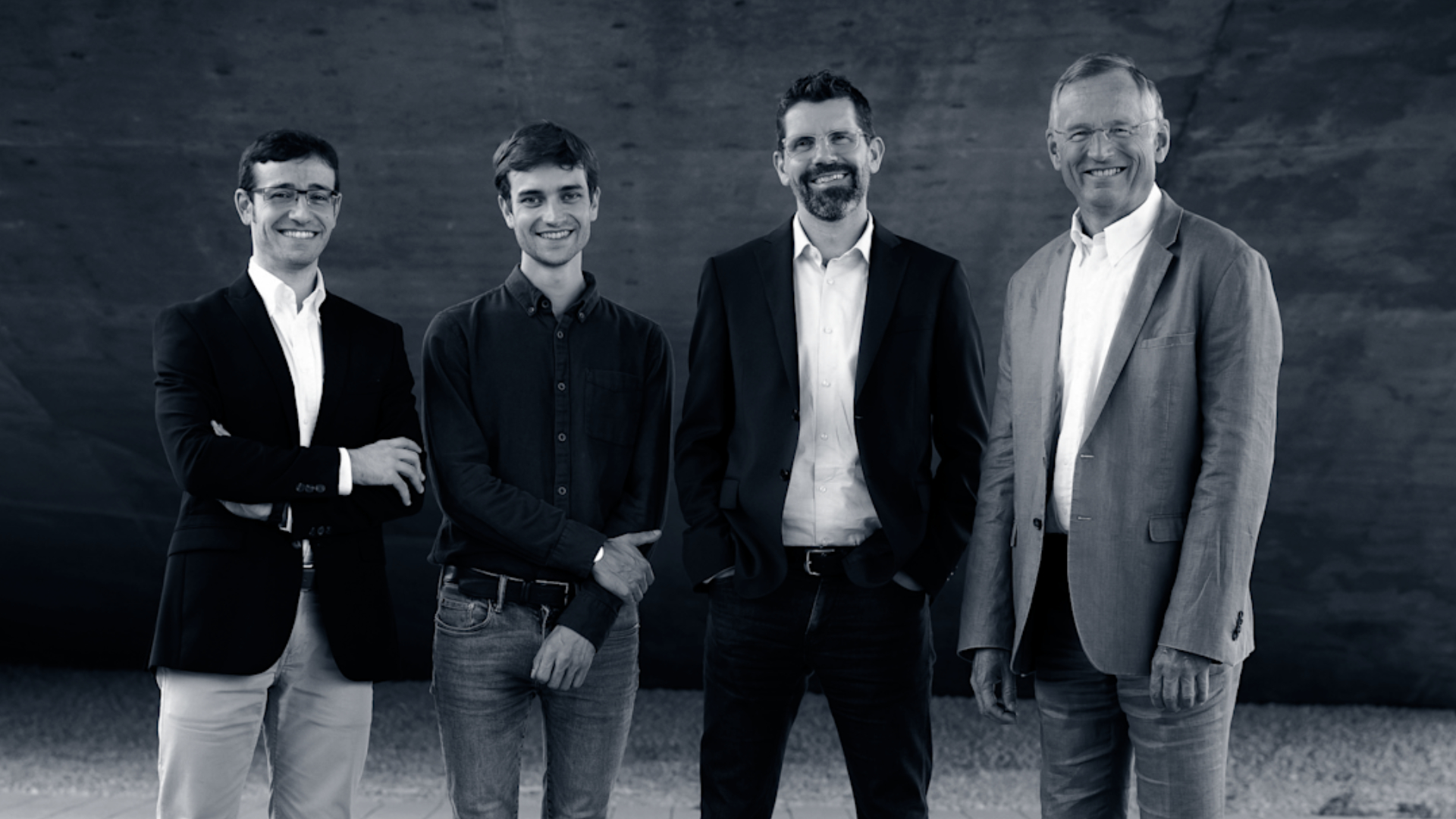How do you exchange and analyze sensitive data, without compromising confidentiality? This is the thorny problem that EPFL startup Tune Insight is tackling, revolutionizing the way we collaborate on sensitive data, particularly in the medical field.
Academic prelude
Tune Insight's adventure began in 2016, when Swiss hospitals approached EPFL's Laboratory for Data Security (LDS) with a specific challenge: to collaborate on patient data for research purposes, without exposing this sensitive information or moving the data. Anticipating future regulatory constraints, these medical institutions were looking to exploit the value of their data while preserving its confidentiality.
Under the direction of Professor Jean-Pierre Hubaux, and after recruiting Juan Troncoso Pastoriza, who has been working on genomic data protection since 2005 and will become CEO of Tune Insight, the laboratory set about developing a technology combining existing cryptographic methods in an innovative way. The aim was to enable calculations on encrypted data without decrypting it, an approach known as homomorphic encryption. However, due to the high costs associated with this technology, the team is integrating other techniques to create a platform capable of handling large amounts of data while keeping expenses under control. This ingenious combination, published in Nature Communications and patented by EPFL, removes the initial constraints and paves the way for secure collaborations on sensitive data.
Orchestrating a startup
Aware of the potential of this solution beyond the hospital sector, particularly in fields such as cybersecurity and financial fraud detection, the team is considering a wider application of its technology. It was against this backdrop that Professor Hubaux and Juan Troncoso Pastoriza met Frédéric Pont, then at EPFL's Technology Transfer Office (TTO), to explore opportunities for commercialization. Tune Insight was born, with the mission of transforming the data economy into an insights economy, where interpretation and understanding derived from data take precedence over raw access to it.
The name "Tune Insight" reflects this vision: like a symphony where each instrument contributes to a harmony without being individually distinguishable, Tune Insight's technology enables data sets to be combined to create a "symphony" of information and knowledge, while preserving the confidentiality of each source.
Dealing with the right financing instruments
Frédéric Pont, backed by his experience at TTO and his close relationship with Alliance, naturally turned to Robert van Kommer, ICT innovation consultant, to benefit from his expertise in supporting innovation projects. "I knew that the team had a great deal of experience in setting up projects. It was important for us to be able to benefit from people who have followed many startups. This optimizes the chances of projects being approved," he stresses.
Robert van Kommer helped Tune Insight structure its proposals, identify the best financing strategies and secure Innosuisse funding. Indeed, one of the challenges for deeptech startups is to take a realistic look at their progress, so as to be able to turn to the right solutions for their stage of development.

We'd like to say that we're further ahead than we really are. The outside view of an expert gave us a valuable reality check. Alliance enabled us to better calibrate our requests and maximize our chances of success.
This support has led to two Innosuisse projects: the first, on the confidentiality of large language models (LLMs) in partnership with Professor Martin Jaggi's MLO laboratory at EPFL, exploring how to train or adjust these models on sensitive data while preserving their confidentiality. This project has resulted in a publication which has just been submitted.
The second, a Startup Innovation Project (SIP), aims to extend the application of the artificial intelligence platform beyond hospitals to the pharmaceutical sector.
A third project was also accepted, a Eurostar in collaboration with Swiss and Italian hospitals from the PERN network (Pediatric Emergency Research Network, bringing together 50 hospitals worldwide for pediatric emergency research). This project facilitates the training of algorithms on highly sensitive data, addressing the specific challenges associated with the absence of direct patient consent and differing international regulatory frameworks.
Rehearsing with the ecosystem before playing in public
Like many deeptech startups born out of an academic institution, Tune Insight faces typical challenges, not least the transition from a laboratory technology to a marketable solution. "We're a startup created around a complex technology. Our challenge, even if the initial demand came from hospitals, is to find a place in the market", admits Frédéric Pont. Nonetheless, he stresses that he is fortunate to benefit from the EPFL ecosystem, including support from Innogrants, Venture Kick and Alliance, which facilitates this transition.
Today, Tune Insight employs around 15 people, with a reinforced presence in Switzerland and expansion in Europe, notably in France, Germany and Spain. The startup plans to continue developing its network of hospitals and to set up a platform facilitating interactions between hospitals and the biopharmaceutical industry. This initiative aims to leverage hospital data to accelerate the implementation of personalized treatments and improve patient care.
"The ecosystem around EPFL for young startups is extraordinary. But it's the responsibility of entrepreneurs, especially for deeptech startups, to make the best use of this ecosystem to accelerate the transition to market and customers. We need to understand the needs that a product based on an innovative technology can meet, the product-market-fit, and not just keep improving the technology." Frédéric Pont
Tune Insight at a glance
Foundation: 2021
Headquarters: EPFL Innovation Park
Team: 16 people
Website: tuneinsight.com

